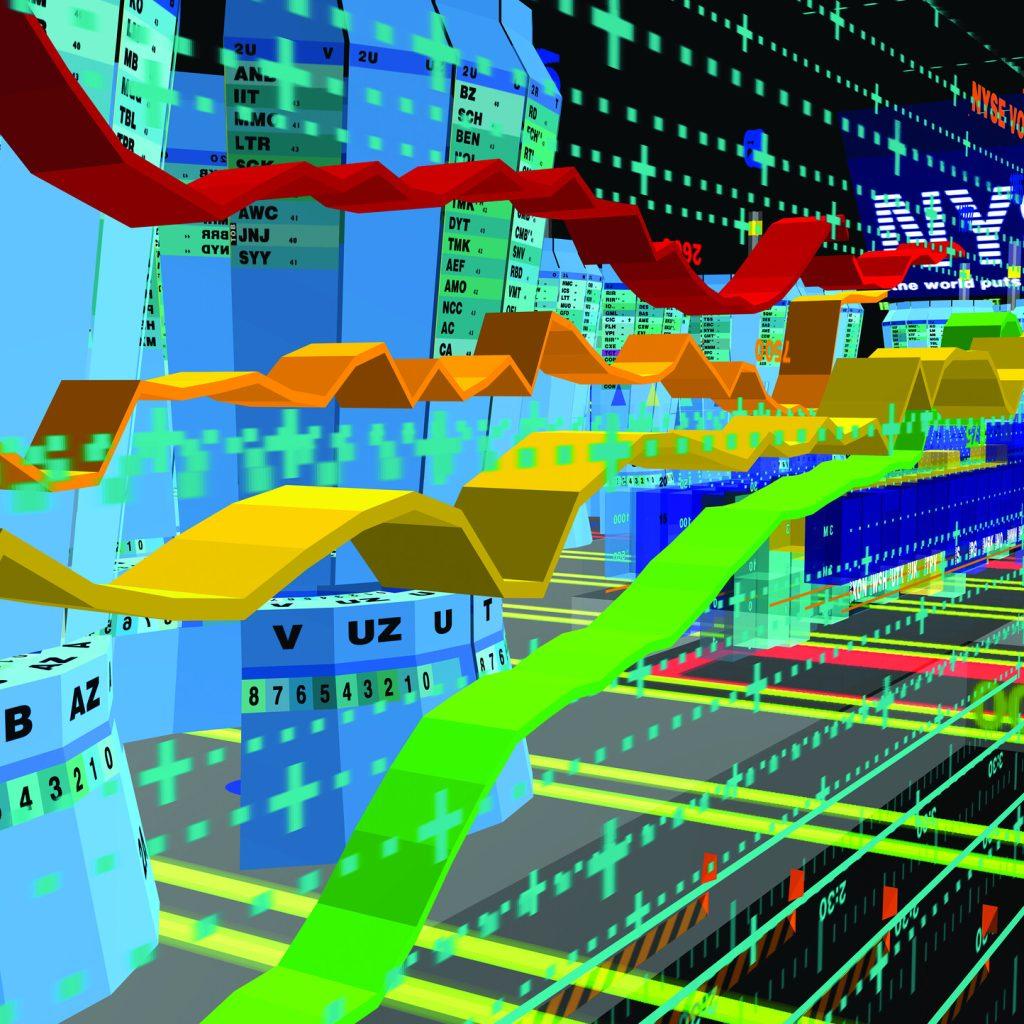In the Garden of Speculative Delights: On the Financialisation of Cognition

Today, growing concerns with climate change, energy scarcity, security, and economic volatility have turned the focus of urban planners, investors, scientists, and governments towards computational technologies as sites of potential salvation from a world consistently defined by catastrophes and “crisis”.
Image: Asymptome Architecture, New York Stock Exchange Trading Floor, 1997.
From large scale computer simulations of the weather, to smart cities and infrastructures, to geo-engineering projects, we have arguably transformed the planet into a test-bed and experiment for computational technologies. The penetration of almost every part of life by digital technologies has transformed how we understand nature, culture, and time. But what futures are we imagining, or foreclosing through these planetary “experiments”? How have we come to see human survival as fundamentally dependent on computational networks? This talk maps the rise of this “smartness mandate”. Tracing genealogies from artificial intelligence, finance, architecture, and art I will develop an account of how ubiquitous computing has become one the dominant governing logics of our present (and possibly our future) and to what effects.
People

Orit Halpern
Orit Halpern is Full Professor and Chair of Digital Cultures and Societal Change at Technische Universität Dresden. Her work bridges the histories of science, computing, and cybernetics with design. She completed her Ph.D. at Harvard. She has held numerous visiting scholar positions including at the Max Planck Institute for the History of Science in Berlin, IKKM Weimar, and at Duke University. She is currently working on two projects. The first is a history of automation, intelligence, and freedom; the second project examines extreme infrastructures and the history of experimentation at planetary scales in design, science, and engineering.
She has also published widely in many venues including Critical Inquiry, Grey Room, and Journal of Visual Culture, and E-Flux. Her first book Beautiful Date: A History of Vision and Reason (Duke UP 2015) investigates histories of big data, design, and governmentality. Her current book with Robert Mitchell (forthcoming MIT Press December 2022) is titled the Smartness Mandate. The book is a genealogy of our current obsession with smart technologies and artificial intelligence.

